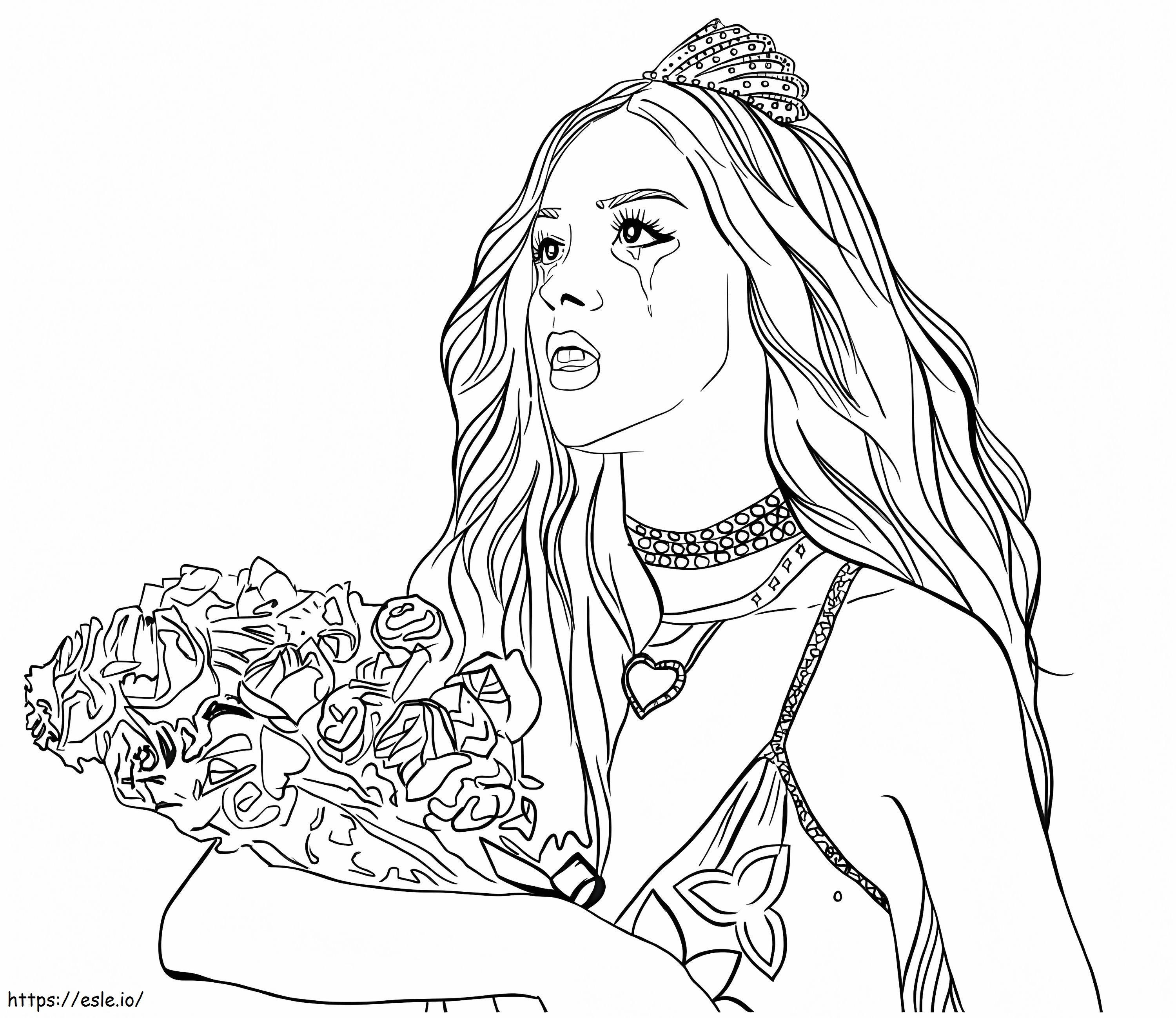Olivia Rodrigo, the rising pop sensation, has captivated millions with her heartfelt music and authentic persona. However, the emergence of deepfake technology has brought new challenges to her public image and the entertainment industry as a whole. As we delve into this intriguing topic, we will explore how deepfakes impact Olivia's career and the broader implications for celebrities worldwide.
In today's digital age, advancements in artificial intelligence have made it possible to create highly realistic deepfake content. While some may view this technology as a creative tool, others raise concerns about its potential misuse. Olivia Rodrigo's journey provides a fascinating case study to examine these issues.
This article will provide an in-depth analysis of Olivia Rodrigo's career, the rise of deepfake technology, and its effects on her public image. We will also discuss strategies to combat misinformation and protect celebrities' reputations in the digital era.
Read also:Discover The Allure The Ultimate Guide To Jimmy Choo Cologne
Table of Contents:
- Biography of Olivia Rodrigo
- Understanding Deepfake Technology
- Olivia Rodrigo and Deepfakes
- Impact on Olivia's Career
- Legal and Ethical Issues
- Preventing Misuse of Deepfakes
- Entertainment Industry's Response
- Fan Perspective on Deepfakes
- Future Trends in Deepfake Technology
- Conclusion
Biography of Olivia Rodrigo
Early Life and Career
Olivia Rodrigo, born on February 20, 2003, in Temecula, California, gained fame as an actress and singer. Her breakout role on Disney Channel's "Bizaardvark" paved the way for her successful music career. Below is a brief overview of her personal and professional life:
| Full Name | Olivia Rose Rodrigo |
|---|---|
| Date of Birth | February 20, 2003 |
| Place of Birth | Temecula, California, USA |
| Profession | Singer, Songwriter, Actress |
| Breakthrough | Disney Channel's "Bizaardvark" and debut single "Drivers License" |
Olivia's meteoric rise in the music industry has earned her a dedicated fan base and numerous accolades. Her debut album, "SOUR," received widespread critical acclaim and topped charts worldwide.
Understanding Deepfake Technology
Deepfake technology refers to the use of artificial intelligence to create or manipulate visual and audio content, making it appear authentic. This technology has advanced significantly over the past few years, raising both opportunities and concerns.
How Deepfakes Work
- Deepfakes utilize machine learning algorithms to analyze vast datasets of images, videos, and audio recordings.
- The technology can generate realistic content by mapping facial expressions, voice patterns, and movements onto another person's image or voice.
- Applications range from entertainment to misinformation, with the potential for both positive and negative impacts.
According to a report by Deeptrace Labs, the number of deepfake videos online increased by 330% between 2019 and 2020, highlighting the rapid growth of this technology.
Olivia Rodrigo and Deepfakes
Olivia Rodrigo's popularity has made her a target for deepfake creators. While some fans create harmless fan art or videos, others may exploit her image for malicious purposes. This section examines specific instances where deepfakes involving Olivia have surfaced.
Read also:Effective Strategies For Treating A Yeast Infection A Comprehensive Guide
Notable Deepfake Cases
Several deepfake videos featuring Olivia have circulated online, often blurring the line between entertainment and misinformation. These videos range from comedic parodies to more concerning content that misrepresents her views or actions.
Impact on Olivia's Career
Deepfake technology poses significant challenges to Olivia Rodrigo's career and reputation. Misinformation can spread rapidly on social media, affecting public perception and trust in celebrities.
Strategies to Mitigate Impact
- Collaborating with tech companies to develop tools that detect deepfakes.
- Engaging with fans through verified social media channels to clarify misinformation.
- Working with legal teams to address copyright and defamation issues.
Olivia's management team actively monitors online content to ensure her public image remains authentic and trustworthy.
Legal and Ethical Issues
The rise of deepfake technology raises complex legal and ethical questions. Celebrities like Olivia Rodrigo face challenges in protecting their intellectual property and maintaining control over their public image.
Current Legal Framework
Existing laws, such as copyright and defamation statutes, offer limited protection against deepfakes. However, new legislation is being proposed to address these emerging challenges. For example, the Deepfake Report Act aims to establish guidelines for detecting and combating deepfake content.
Preventing Misuse of Deepfakes
Preventing the misuse of deepfake technology requires a multifaceted approach. Collaboration between tech companies, policymakers, and content creators is essential to develop effective solutions.
Technological Solutions
- Developing advanced detection tools to identify deepfake content.
- Implementing digital watermarking to verify the authenticity of media files.
- Promoting transparency in content creation to distinguish between real and synthetic media.
These measures aim to empower individuals and organizations to combat misinformation effectively.
Entertainment Industry's Response
The entertainment industry has taken steps to address the challenges posed by deepfake technology. Studios and production companies are investing in tools and strategies to protect their talent and intellectual property.
Innovative Approaches
- Creating educational campaigns to raise awareness about deepfakes among fans and creators.
- Establishing industry-wide standards for content authenticity and verification.
- Collaborating with tech companies to develop cutting-edge detection technologies.
These initiatives demonstrate the industry's commitment to safeguarding the integrity of its content and talent.
Fan Perspective on Deepfakes
Fans play a crucial role in shaping public perception of celebrities and their relationship with deepfake technology. Many fans view deepfakes as a form of creative expression, while others express concerns about their potential misuse.
Engaging Fans Responsibly
Encouraging responsible content creation and consumption is vital to addressing deepfake challenges. Celebrities and their teams can foster positive fan engagement by:
- Providing educational resources about deepfake technology and its implications.
- Encouraging fans to report suspicious or misleading content.
- Building communities that prioritize authenticity and respect for artists' work.
Future Trends in Deepfake Technology
As deepfake technology continues to evolve, its impact on the entertainment industry and society at large will grow. Staying informed about emerging trends is essential for addressing these challenges effectively.
Predicted Developments
- Increased sophistication in deepfake creation, making detection more challenging.
- Growing demand for robust detection tools and verification systems.
- Emergence of new legal frameworks to regulate deepfake content and protect intellectual property.
These trends underscore the importance of proactive measures to mitigate the risks associated with deepfake technology.
Conclusion
Olivia Rodrigo's journey in the entertainment industry highlights the complexities of navigating the digital landscape in the age of deepfake technology. By understanding the challenges and opportunities presented by this innovation, we can work together to protect artists' reputations and promote responsible content creation.
We invite you to join the conversation by sharing your thoughts in the comments section below. Feel free to explore other articles on our website for more insights into the intersection of technology and entertainment. Together, we can foster a digital environment that values authenticity and creativity.


